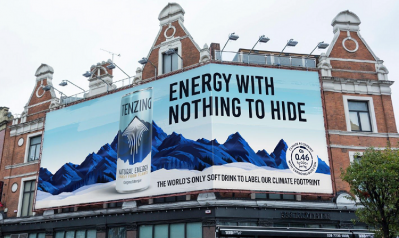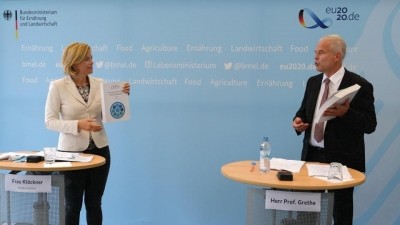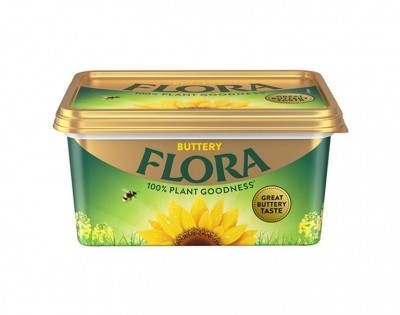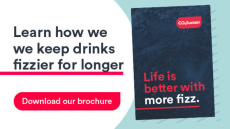Upfield’s carbon labelling plans: Gimmick or triumph for consumer choice?
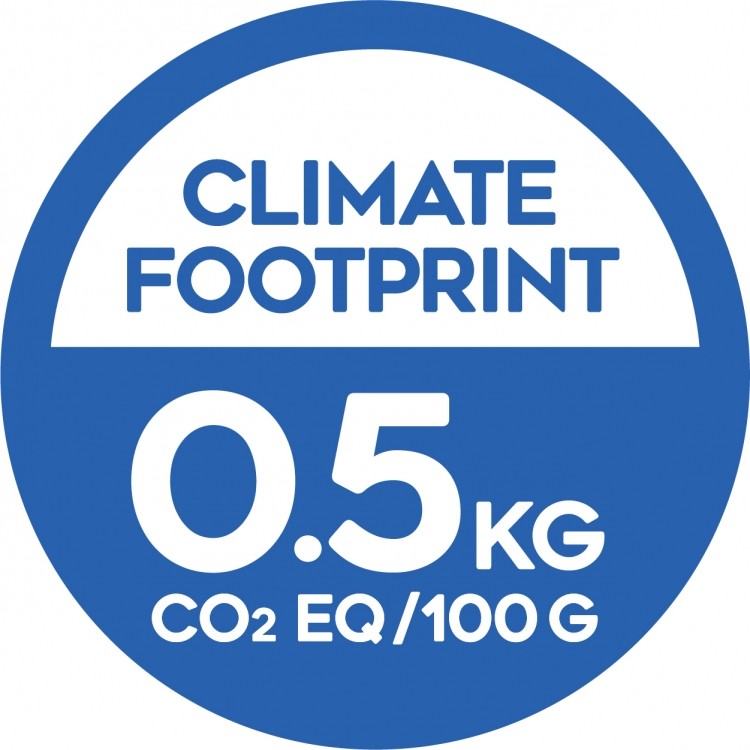
Upfield’s Flora Plant brand in the UK and Ireland is the first to have introduced the new labels in Europe. In the coming months Upfield, the largest plant-based consumer packaged goods company in the world, operating in 95 countries, plans to roll out the labels on its leading brands including Becel, ProActiv and Rama.
The Flora Plant label provides information on the amount of greenhouse gas emissions in carbon dioxide equivalent (CO2e) per 100g of product.
This is calculated using approved and recognised standards for life cycle assessment, in partnership with Swiss sustainability firm Quantis. Carbon labels display the total emissions throughout the entire life cycle of the product, including ingredient sourcing, manufacture, packaging, transport and storage.
Upfield said the calculations have been independently peer reviewed by a panel of experts and are in compliance with ISO standards for LCA and the disclosure of information.
The initiative came after scientists investigated the environmental impact of Upfield’s margarine and spreads compared to animal-derived products. The peer-reviewed study concluded the plant-based spreads have a 70% smaller carbon footprint, occupy 2/3 less land and use only half as much water as dairy butter.
Another report released last year suggested consumer behaviour is positively affected by carbon labelling, with shoppers opting for food with lower environmental impacts when they can make direct comparisons between different food groups.
“Today’s food labels already provide consumers with a lot of important information about ingredients, health benefits, allergens, storage and use. By adding carbon labels, consumers will also be able to understand the impact their food choices have on our climate,” said Dr. Jeanette Fielding, Upfield’s Chief Corporate Affairs and Communications Officer.
A complicated picture
The traditional dairy industry, however, says the mounting criticism it has come under for the perceived impact that cows have on the environment is unfair.
RABDF, the UK charity representing milk producers, claimed in a report earlier his year that dairy production is responsible for just 3% of global greenhouse gas emissions
Matthew Knight, RABDF’s chief executive, said: “Livestock farming, particularly cattle production, has been facing increasing amounts of pressure for the perceived impact that cows have on the environment.
“While there is always room for improvement when it comes to farming’s environmental footprint, so much of the criticism levelled at dairy farmers has been incredibly unfair.
“Not only can statistics around carbon footprints and greenhouse gas emissions be incredibly complicated, but much of the information currently being reported in the media overstates the impact of dairy cattle on the environment.
“Significantly, they also ignore the excellent work so many British dairy farmers have done to reduce greenhouse gas emissions and limit their carbon footprint, such as improving genetics, making production efficiencies and streamlining supply chains.”
Traditional dairy would also question the health credentials of margarine -- a highly processed food product made from vegetable oils – versus butter, a concentrated dairy fat.
Upfield’s Flora Plant is made with sunflower, linseed and rapeseed oils and has no trans fats. Flora Original claims to have at least 67% less saturated fat than conventional butter.
Carbon labelling: Too expensive and time consuming?
Critics of carbon labelling, meanwhile, complain it is too complex and would be too expensive, particularly for smaller companies.
Upfield said the time taken to calculate the climate impacts varies from product to product.
“Calculating the climate impact of our products is not an easy endeavour and requires rigorous analysis and review alongside supply chain data on where our ingredients are sourced, as well as taking into account product composition, manufacture, packaging, transport and storage,” it revealed.
The company also ruled out raising the prices of its products with carbon labelling.
“Carbon labelling is something we want to do as a responsible business, and we believe it is worth the investment,” a spokesperson told FoodNavigator. “We have no plans to increase prices on the basis of carbon labelling. We are confident that consumers want to make more sustainable choices and giving them the information to do that is essential.”
